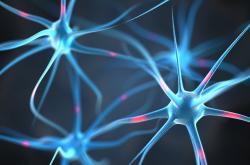The Hippocampus and the Stress Response
Hippocampus is part of the brain, which plays an important role in how our bodies respond to stress. Learn how hippocampus dysregulation occurs and how you can prevent it.
When it comes to dysregulation in the adrenals, one of the most often-overlooked causes has its origins in the small region of the brain, called hippocampus. Because of its role in the coordination of the adrenals’ circadian rhythms, any disruption to hippocampus can create the perfect environment for disruption in the cortisol circadian rhythm as well. To understand how this can happen, it is important to understand the role of the hippocampus, its vulnerabilities, and indications that it may be suffering dysregulation.
The Role of the Hippocampus
As noted above the hippocampus has a role to play in the adrenal glands’ circadian rhythm. It is also critically important in the stress response process, which is something every fatigue patient needs to understand. This area of the brain is of vital importance for cognitive skills, which play an important role in how the brain responds to the various stressors it encounters each day. In addition, the hippocampus is vital for memory.
What Makes Hippocampus Vulnerable?
Because of its role in the stress response, this part of the brain is packed with cortisol receptors. These receptors can become a source of disruption when stress becomes a chronic condition, as the hippocampus can end up being constantly soaked in cortisol. While the brain ordinarily interacts with this hormone with no ill effects, the constant flood of hormones involved in repeated stress responses can actually kill the brain cells within the hippocampus.
In addition, the hippocampus can be vulnerable to factors such as high levels of sugar and starch consumption, and the free radical damage that can result. Various autoimmune difficulties and allergic reactions can also cause inflammation that damages this area of the brain. So too can nutritional deficiencies, particularly deficiencies in critical B-complex vitamins and omega-3s. Yes, if your dietary habits are poor, you can literally kill off your brain cells!
Brain Tip: Eat Right for Better Brain Health!
To preserve these vital brain cells and guard against health complications, be sure to eat the right foods and secure your daily allotment of critical nutrients. That means eating balanced meals that include protein, fats, and complex carbohydrates – while also focusing on essential vitamins and minerals.
Hippocampus Dysregulation
Dysregulation of the hippocampus may occur for a variety of reasons, but it does not arrive without announcement. In fact, there are a number of clear signs and symptoms that can serve as indications of this type of dysregulation. Here are just a few of the most common indicators:
Hippocampus Dysregulation Symptoms
- Insomnia and other sleep disorders
- Lack of energy in the afternoon
- Increased energy in the evening
- Cognitive, memory, and learning difficulties
- Low tolerance for stress
- Uncontrollable mood swings
As you can see, the important role of the hippocampus in the lives of stress-fatigued patients is something that cannot be overstated. While there are many other critical factors that can contribute to poor stress response and the adrenal excitement that stress can induce, few are as influential as this tiny area of the brain. Patients who are aware of its role, vulnerabilities, and influence on their health can take affirmative steps to better manage brain health.
You might also be interested in:
- Aging, stress and the hippocampus. http://www.sciencedirect.com/science/article/pii/S1568163705000036
- Stress: Your brain and body. http://www.youramazingbrain.org/brainchanges/stressbrain.htm 3.
- How Chronic Stress Can Harm You. http://brainworldmagazine.com/how-chronic-stress-can-harm-you/
- Stress Effects on Structure and Function of Hippocampus. http://lab.rockefeller.edu/mcewen/stresshippo
- Effects of Stress on the Hippocampus. http://drgailgross.com/academia/effects-of-stress-on-the-hippocampus/


















Leave a comment